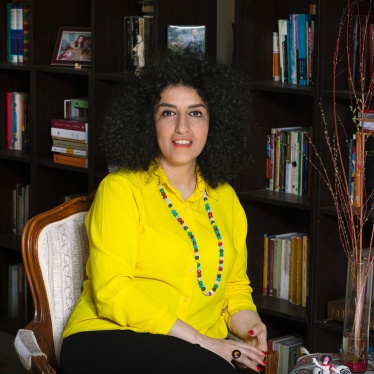(Geneva) – An estimated 150 unaccompanied migrant children being held in a detention center on Lesvos Island were on a hunger strike for four days to protest their living conditions, Human Rights Watch said today. The protest, reported by local sources, follows recent police sweeps of migrant living quarters in Greek cities. The children ended their strike on Friday, August 21.
Human Rights Watch said that the use of detention for unaccompanied children shows the failure of Greece to fulfill its responsibilities toward these children. Greece should house unaccompanied migrant children in open centers where they can receive care, counseling, legal aid, and other basic services, and enjoy decent living standards, Human Rights Watch said.
A year ago, 100 migrant children detained on another island, Leros, went on a hunger strike for the same reasons. At that time, the Ministry of Health dispatched its deputy minister to solve the crisis and opened additional temporary accommodation.
“That children as young as 12 were again on hunger strike in Greek detention is a gross indictment of the government’s failure to care for them,” said Simone Troller, children’s rights researcher at Human Rights Watch. “Greece keeps jailing these children, but still has no system or even a plan in place to house them and cover their basic needs.”
Local sources said that up to 150 unaccompanied migrant children ages 12 to 17 started a hunger strike on August 18, 2009, to demand their release from the overcrowded and dirty conditions in a detention centre in Mitilini, the island’s capital. They resumed eating on August 21. On August 20 and 22, police released around 120 children to open accommodation centers, putting additional pressure on these facilities, some of which already run beyond their capacity. Several dozen, possibly more than 100, unaccompanied children remain in detention. The detention center has space for 300 detainees, but holds more than double that number.
Greece currently provides around 300 places in state care for unaccompanied migrant children, and these are full. Any child who enters Greece is thus likely to end up in detention or on the streets. Human Rights Watch estimated that at least 1,000 migrant children entered Greece without a parent or caregiver in 2008.
A year ago, the Council of Europe’s Committee for the Prevention of Torture described conditions in Mitilini detention center as “abominable,” adding that they were “a health hazard for staff and detainees alike.” It urged the government to put in place a plan to guarantee basic hygienic standards even when large numbers of migrants arrive.
A 13-year-old Afghan boy who had been detained for 34 days on Lesvos Island told Human Rights Watch at the end of July: “I faced a lot of difficulties in that [detention center] … everything was very dirty. … In a week, they just let us into the courtyard for 15 or 20 minutes. … We got sick day by day there.”
In a December 2008 report, “Left to Survive: Systematic Failure to Protect Unaccompanied Migrant Children in Greece,” Human Rights Watch extensively documented these children’s daily struggle for survival, their squalid living conditions, widespread experience of police and coast guard violence, exploitation in agriculture and construction, and the risks they face of ending up in the hands of trafficking gangs.
The 1990 Convention on the Rights of the Child, ratified by Greece in 1993, requires Greece to provide protection and humanitarian assistance to all children without a parent or caregiver, including those seeking refuge, with the child’s best interests as a primary consideration. Under this convention, detention should be used “only as a measure of last resort and for the shortest appropriate period of time.”
Greece grants asylum to only 0.05 percent of applicants at initial hearings, and changes to Greece’s asylum law introduced in July bar meaningful appeal of negative decisions. If children claim asylum in Greece but then go to another EU country, they risk transfer back to Greece under the EU’s Dublin regulation, which stipulates that the first country where an unaccompanied child applied for asylum is in charge of that application.
Asylum interviews in Greece are typically short and superficial. Hafiz, a 16-year-old boy, described to Human Rights Watch how an Iranian interpreter instead of a police officer conducted his asylum interview:
“An Iranian woman asked me questions: why I came and what my difficulties were. There were no police officers present … only the Iranian woman was asking me questions. The police were busy taking fingerprints. … There were too many people at the police station, so they couldn’t do long interviews. They just asked me very simple questions at the police. I answered all the questions she asked me. The questions were short and I couldn’t fully explain my case.”
Unaccompanied children who do not apply for asylum or who have been refused asylum are without regular status and subject to repeated detention or even deportation, in violation of binding international law.
“Greece certainly faces serious challenges in managing migration because of its location and the lack of EU burden-sharing,” said Troller. “But that does not excuse its failure to protect those who are most vulnerable.”








